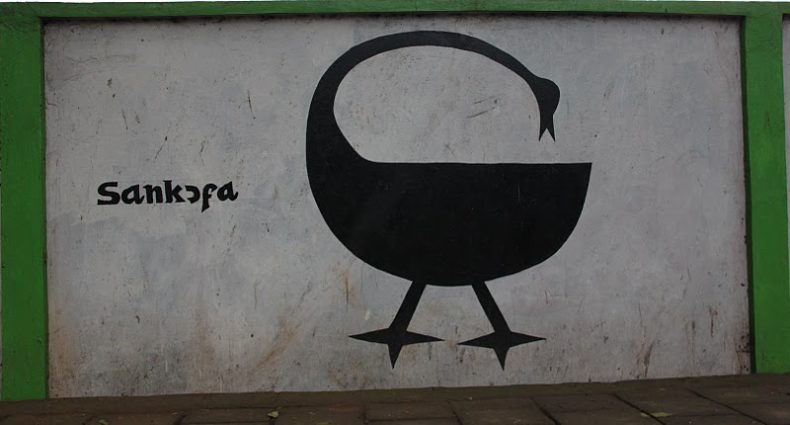
One of my favorite futurist quotes comes from a 1956 Ford commercial called Design for Dreaming. In it, the main character sings (yes, it’s a musical) the line: “Everyone says the future is strange, but I have a feeling some things won’t change.”
I love this quote for a lot of reasons, and I use it often when I talk about the future. It reminds me that despite all the hand wringing and promises, progress is slow. And there are a lot of things that don’t change about humans. It reminds me that change takes work, it won’t just happen purely as the result of time. I also like to think about flipping the idea around. The future will be strange, but not because it will be so different from the present. But because the present is already incredibly strange.
I recently went down to Baltimore for something called the Future History Festival, “an exploration of today’s world from the vantage point of the future.” The whole program was designed around this idea, making today’s world seem strange and foreign. Making us stop and look around and say, “huh, that IS weird!”
The Future History Festival was put on by a group called Spark Camp, which is a little bit hard to describe. Fast Company called it “sort of like a conference, but more fun, and slightly more description-defying.” Their mission is to “engineer productive collisions of talented people to tackle provocative questions, develop meaningful relationships and lead ideas into action.” For the sake of accuracy I will say that the Future History Festival wasn’t technically a Spark Camp, it was put on by Spark Camp, and nobody in attendance really knew what that meant and it didn’t really matter much anyway.
Our indoctrination and training as “Future Historians” began early, with the question “what day or event will we look back on and remember as being important?” A handful of participants were pre-selected to get up on stage and answer, and their responses ranged from voter registration policies, to the fight for trans rights, to Freddie Gray and the Baltimore uprising, to a restaurant where customers never see a human employee.
Over the next two days, we heard about our current and future language (will people still be complaining about figurative “literally” in the future?) and how a machine learning expert considers which technologies might catch on and which are still too fanciful or too difficult. We heard from the health commissioner of Baltimore what the challenges are to keeping an entire city, full of income disparities, healthy. We broke out into groups and pondered questions like what is the future of gender? What makes the past you the same as the present you? (In the midst of this, I was a guest on a live taping of the Slate Money podcast.)
Throughout it all, the task was to step outside of your 2016 body and mind, to peer down at it. To make the conversations and tasks and things that we value feel weird, like some kind of futurist out of body experience. By the second day, the line for coffee seemed very strange to me.
But perhaps the concept that I learned from the Future History Festival that I will use most is something that that Rev. Dr. Heber Brown III mentioned on a panel about Baltimore and policing. He said that before we could really talk about the recent uprising, we had to talk about the history of Baltimore. About all the warning signs that were ignored, all the people who have been killed by the police in the past, all the reports and suggestions for how to curb the injustice that were brushed aside. And he told us about the Ghanian concept of “Sankofa,” often depicted as a bird looking backward. You have to look back before you can look forward, he told us. You have to use the past to guide you into the future. “Everyone says the future is strange, but I have a feeling some things won’t change.”
I hope we look back on 2016 and think that a lot of what we’re fighting about right now is strange: trans rights, voting access, the incredibly disparate incarceration of people of color, whether climate change exists. But I also hope that as we move forward, we remember the concept of Sankofa, and remember to look back. Because if I learned anything from the Future History Festival, it’s that the future will be dark if we haven’t learned from the past.
Oh.. Atemporality. Okay.